04-06-2020 | di COOPI
In Diffa, our schools can count on anti-Covid-19 measures
Since March 2020 the Covid-19 health emergency was added to the humanitarian crisis already pre-existing in the Diffa region, south-east of Niger. Up to today (27th of May, ed.), the total amount of registered cases was 951, whose 7 in the region of Diffa. COOPI, under the project “Promotion and right to education denied: a challenge for refugee, displaced children and adolescent, and private host communities of a safe and inclusive place for learning and for teachers in the Diffa region, Niger” funded by the Italian Agency for Development and Cooperation (AICS), started acting aiming to limit the spread of the virus.
COOPI conducted awareness sessions on prevention measures to inform and train teachers and members of the parents’ committees. To spread the message as much as possible, beneficiaries mobilized their communities throughout the whole first phase of the pandemic emergency.
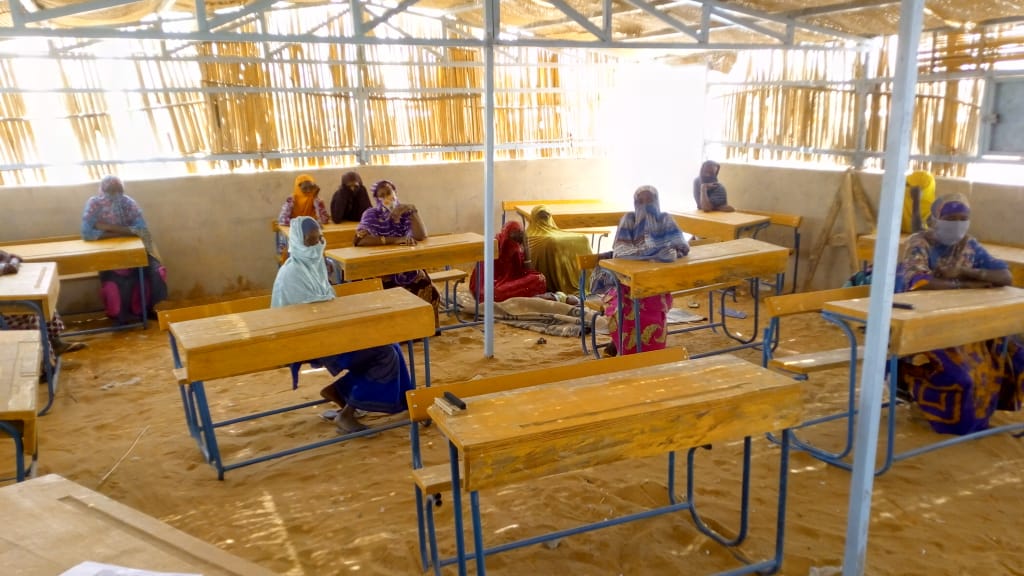
New classrooms
With the start of phase two, schools will reopen from the 1st of June until the 15th of July. COOPI decided to strengthen its answer to Covid-19 and together with the Italian Cooperation is promoting good hygiene practices to guarantee a safe return to schools for the 21.000 beneficiaries.
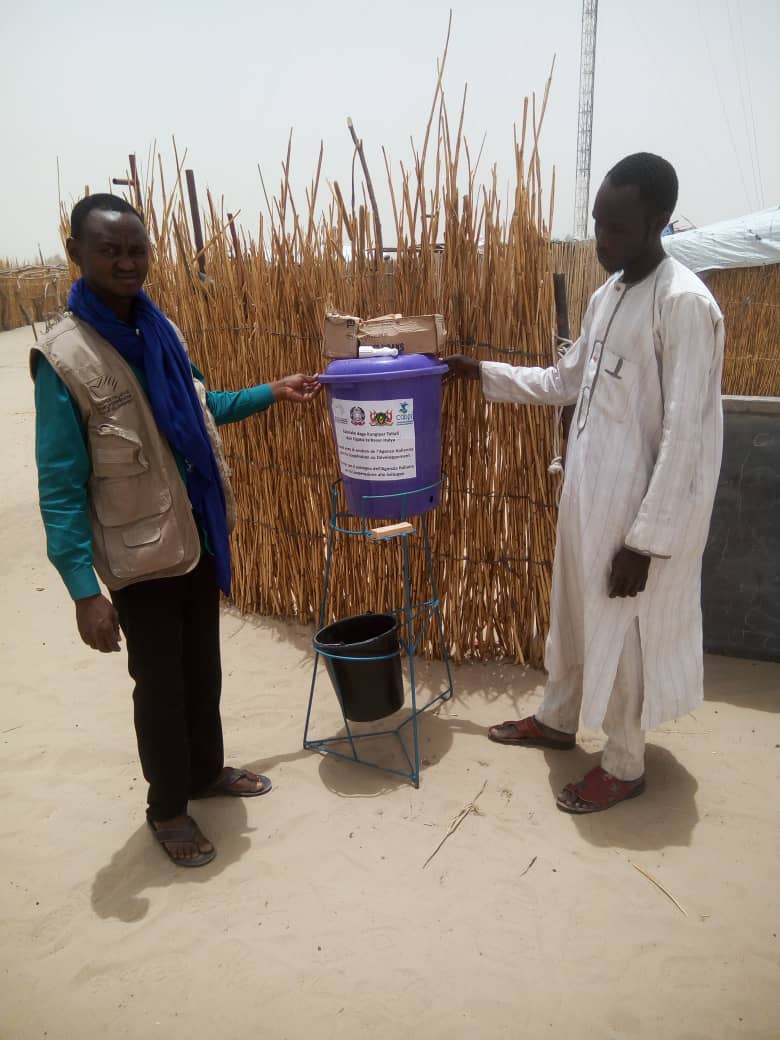
Hand washing devices
In the next months, COOPI will install 80 mobile handwashing devices in 34 schools and 5 distance educations centres. These will be added to the 83 devices already installed between February and April 2020. Moreover, COOPI will rehabilitate and build water points in 21 primary and secondary schools that currently do not have access to drinking water. Finally, COOPI will distribute masks, hygiene kits composed by soap, sanitizer and informative flyers (translated in local language as well) to all 60 schools, 10 literacy centres and 5 distance education centres beneficiaries of the project. Schools’ staff will be able to use flyers to continue the awareness’ activities for children and families.
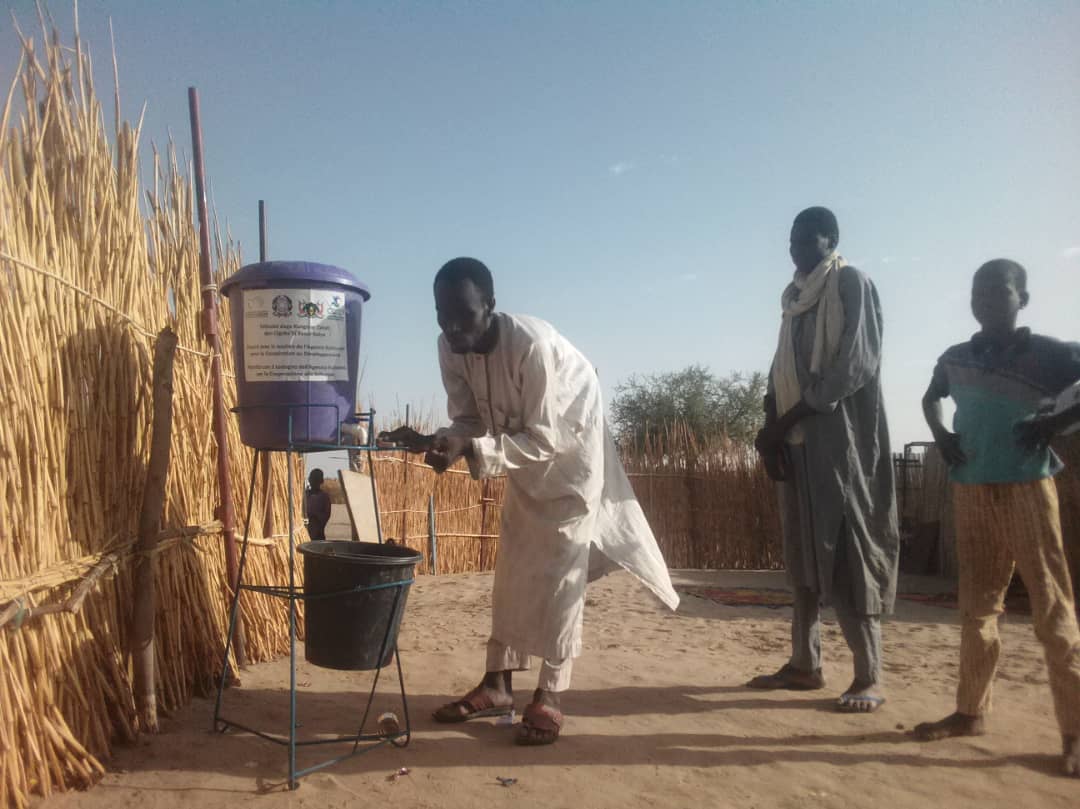
Hand washing devices
To reach the communities living in the most remote regions, COOPI will share and spread prevention messages in collaboration with the local radio. Together with these activities, communications on education’s rights for children will be promoted. In Diffa, the risk of non-returns to school could expose children to violence, child labour, recruitment within armed groups and many other forms of abuse and exploitation.
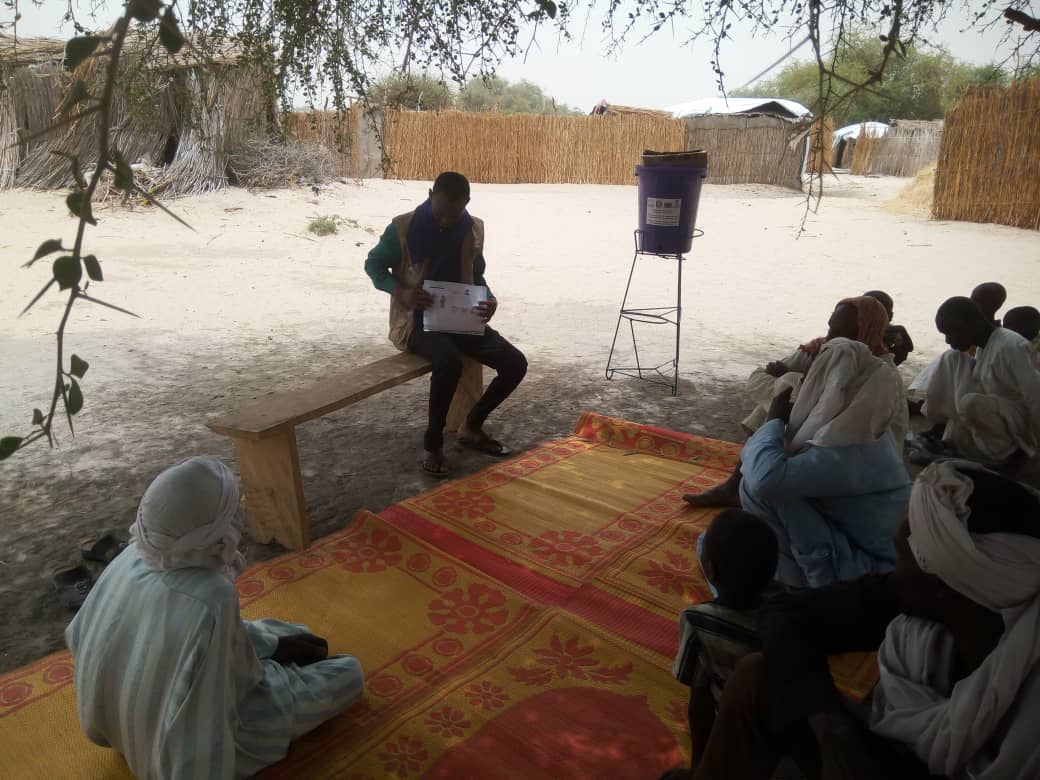
Awareness and training
The humanitarian crisis, caused by terrorist’s groups’ violence on Nigeria’s border in the region of Lake Tchad, hit the Diffa Region since 2015. Since 2009, the crisis affected 106.000 people’s (between 4 and 17 years old) right to access to school and to quality education and exposed them to abuse, violence and exploitation. Among the childhood and adolescents impacted, 51% were females.
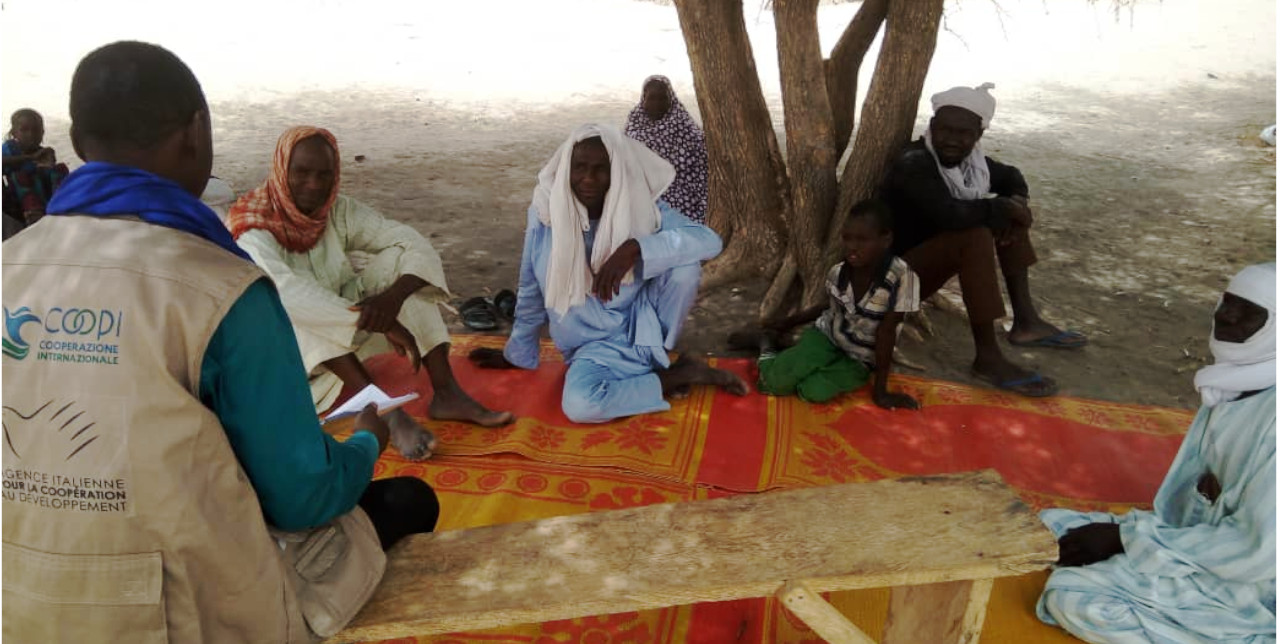



 Niger
Niger